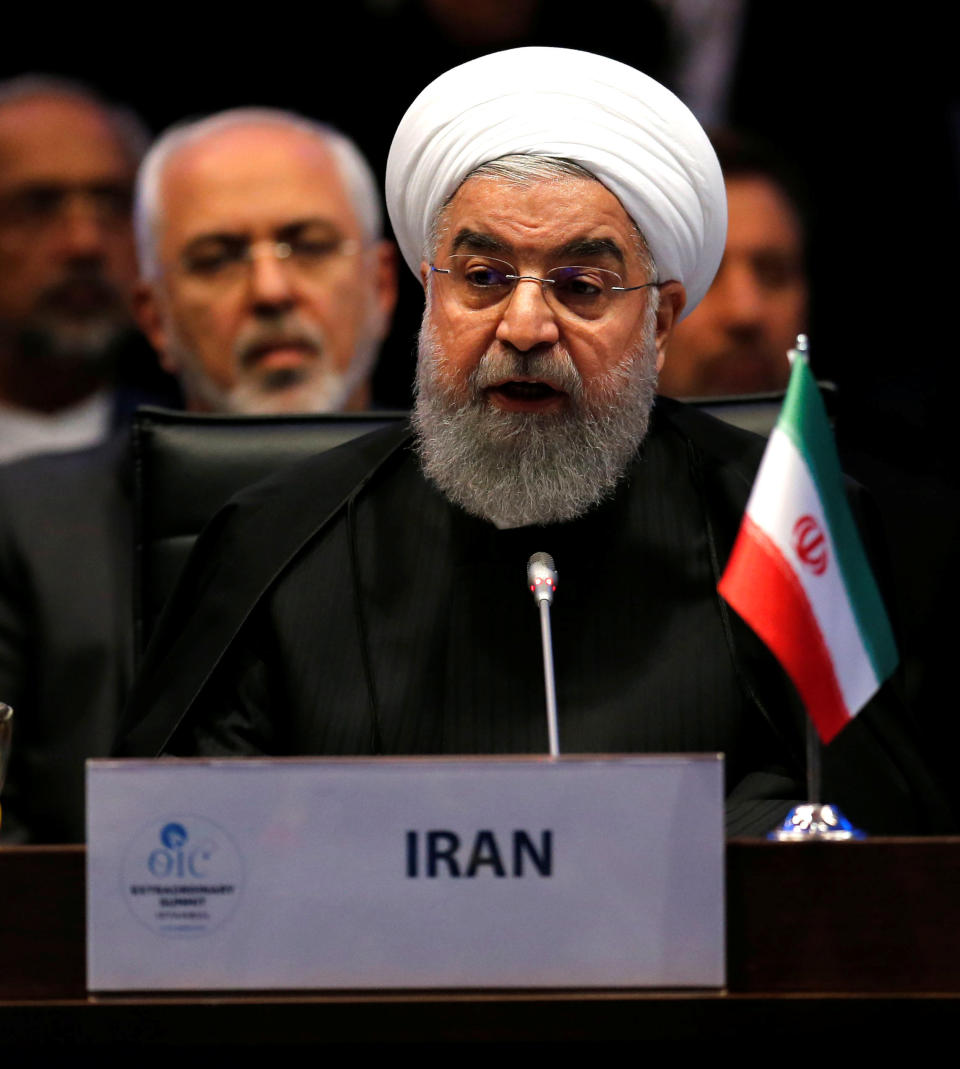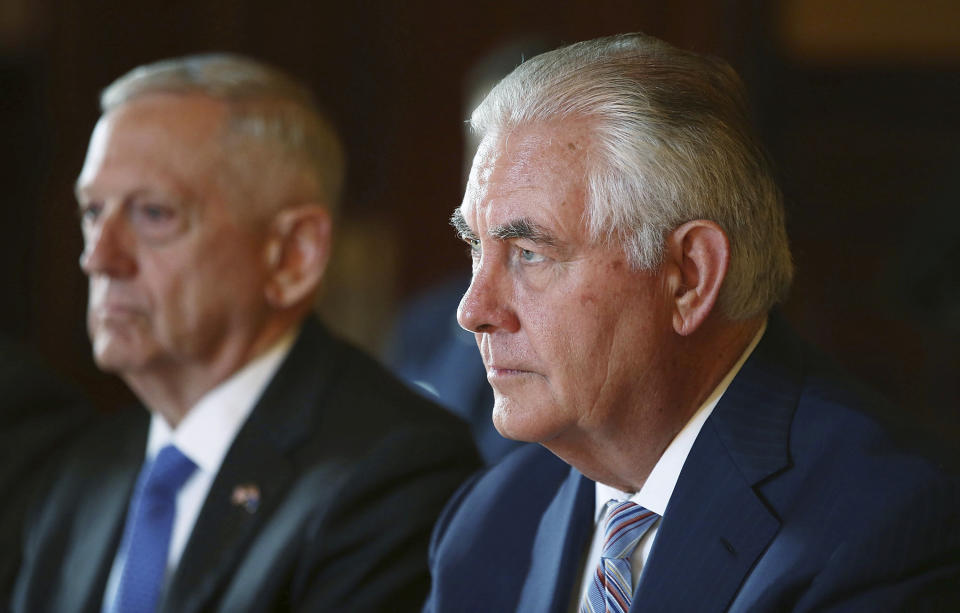Kaine warns U.S. mission shift in Syria, Iraq might be illegal

WASHINGTON — Sen. Tim Kaine, D-Va., pressed the Trump administration on Tuesday to clarify whether U.S. forces deployed in Syria and Iraq to fight ISIS are shifting their focus to confront Iran and its proxies. The Democrat also warned that such a change in the military mission might be illegal absent explicit authorization from Congress.
In a letter to Secretary of State Rex Tillerson and Defense Secretary James Mattis, Kaine cited “troubling news reports” that thousands of U.S. troops will turn from toppling the so-called caliphate set up by ISIS to a new and “open-ended” mission to take on Iran.
“If these reports accurately reflect your intentions, the actions you are likely considering far exceed the counter-ISIS mandate and lack domestic or international legal authority to support the continued presence of U.S. forces absent host nation approval or evidence of an enemy that poses an imminent threat to the United States,” the senator wrote to the secretaries.
Iran has stepped up what America considers its destabilizing activities, including support for Assad and extremist groups, since the death of archenemy Saddam Hussein and in the aftermath of the 2015 nuclear deal Tehran signed with great powers including the United States. The Trump administration has vowed to confront the Islamic Republican more forcefully.

Kaine noted that the administration — like President Obama’s before it — justified the campaign against ISIS on legal grounds by invoking the Authorization for Use of Military Force (AUMF) passed shortly after 9/11 to greenlight the war on al-Qaida, and the AUMF adopted in late 2002 to approve military action against Saddam’s Iraq.
“I am concerned that the United States will soon find itself lacking domestic or international legal standing for operations in Syria based on official statements that our presence, intended for a narrowly-scoped campaign to fight ISIS, might now be used to pressure the Syrian government, target Iran and its proxies, and engage other entities not covered under the 2001 AUMF,” the senator wrote.
Kaine has long pushed for Congress to overhaul the legal underpinnings of the global war on terrorism. He called in mid-2014 for lawmakers to formally approve military action against ISIS.
“We have allowed President Obama to wage an executive war of his own choosing without any congressional permission for nearly two years,” the senator told Virginia Military Institute cadets at their May 2016 graduation. “It’s not hard to imagine that a future president will use this example to also justify initiating war without the permission of Congress.”
In Tuesday’s letter, Kaine highlighted Iraqi Prime Minister Haider al-Abadi’s claim, on Dec. 9, that ISIS had been defeated in Iraq, and the State Department’s statement that same day that the ISIS caliphate there had been “erased.” He also noted that comments from Mattis in mid-November suggested that U.S. forces would stay in Syria to wipe out ISIS remnants and compel dictator Bashar Assad to make concessions at U.N.-backed peace talks in Geneva. “We’re not just going to walk away right now before the Geneva process has cracked,” Mattis told reporters.
Kaine asked the secretaries whether they believed ISIS has been defeated in Iraq and Syria, and how the administration defines victory over ISIS.
He also urged Tillerson and Mattis to say whether the administration planned to keep U.S. forces in Iraq or Syria “to combat Iran,” and under what legal authority. And he asked the defense secretary for the legal justification for using U.S. forces to bring Assad to the negotiating table.
Despite the comments from al-Abadi and the State Department, and the destruction of the ISIS caliphate, that terrorist army has not been defeated. U.S. officials privately describe the Iraqi leader’s comments as a political statement, not a formal military assessment, and note that ISIS fighters remain in Iraq and Syria.

And the White House has struggled to define victory.
Two days after Abadi’s comment, White House press secretary Sarah Sanders told reporters that “there is more work to be done on the ground in the shrinking ISIS-controlled areas, and the president’s plan to annihilate ISIS is moving forward.”
“We must also destroy the evil ideology that is behind ISIS and attacks like today’s. This ideology has no borders but it must be eradicated,” she said. “The president has successfully rallied the world behind this cause, and we will not stop until it is accomplished.”
While losing its caliphate dealt a crippling blow to the core message of the so-called Islamic State, it’s not clear how the United States can eradicate the group’s extremist appeal.
Asked what new policies would help achieve that goal, Sanders promised that “we’re going to continue pushing and continue looking for the best ways possible to make sure that we protect Americans.”
The Departments of Defense and State did not have on-the-record comments at publication time.
Read more from Yahoo News:



